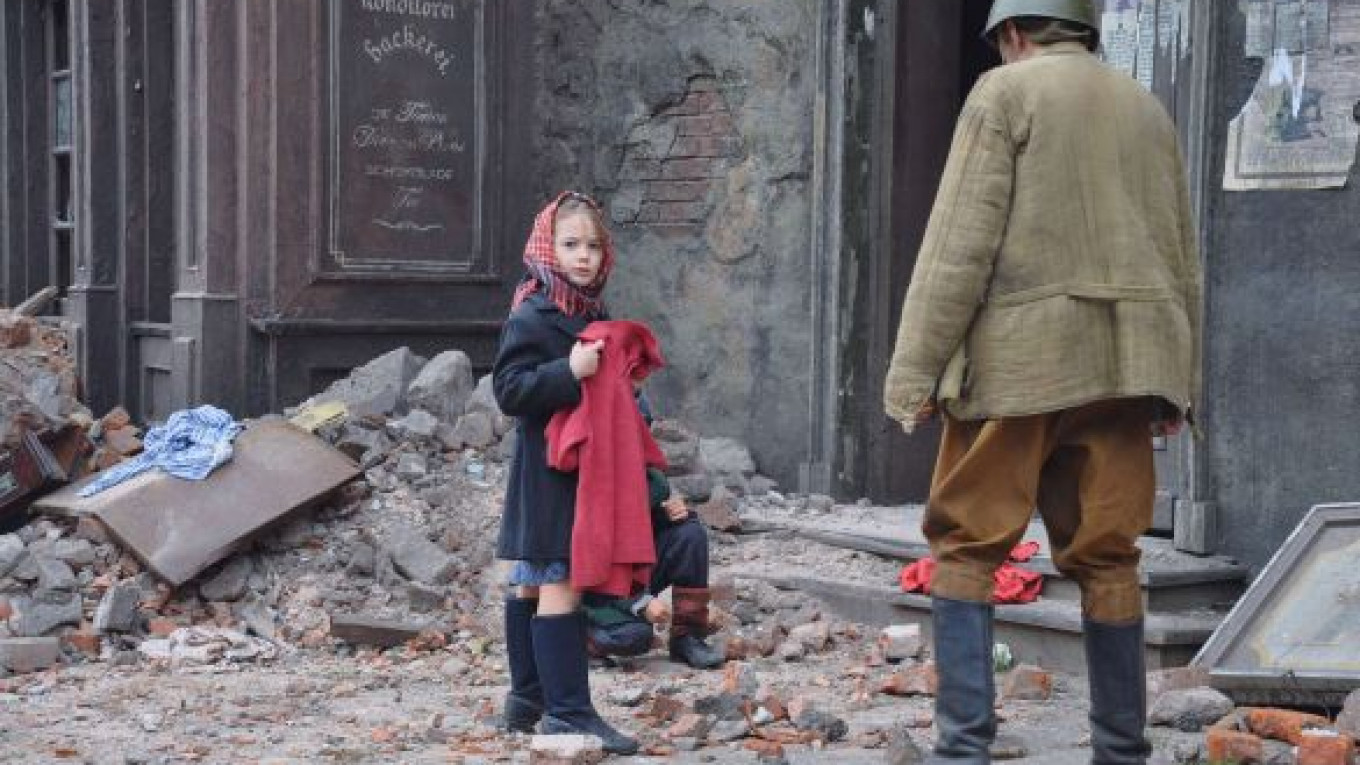Karen Shakhnazarov's "White Tiger," a World War II fantasy blending history, philosophy and the supernatural, has made it onto the long list of Oscar 2013 nominees for Best Foreign Language Films.
The director, who also heads Russia's leading studio, Mosfilm, spoke about his new movie, mysticism in cinema and the struggle for a national film industry.
The Academy Award's shortlist of foreign language nominees will be announced on Jan. 10, 2013.
Q: "White Tiger" is unlike the average World War II movie. The story of a soldier who sets out to defeat a monstrous German tank often borders on the mystical. Why did you choose this particular angle?
A: I got the idea from a short story by Ilya Boyashov called "The Tank Crewman, or the White Tiger." I chose it simply because I found it interesting, as I think most directors do. The larger than life Nazi "ghost tank," the White Tiger, reminded me of Melville's Moby Dick. I think one can still argue the movie is realistic. Many scenes, like that of German capitulation and the following banquet, are based verbatim on historical sources. I would say the supernatural element helps make the story more universal. The White Tiger does not merely stand for the German military threat in the 1940s. After all, Nazi ideology is alive and well: neo-Nazi movements abound, Nietzsche's philosophy is still deemed "respectable" and taught at universities. Many will argue the Nietzsche-Hitler link is tenuous. Still, I think reading [Nietzsche's] "Antichrist" makes it clear that Nazism did not appear out of nowhere. This is where the finale [of my film] comes from: even though Naydenov's companions convince him that war is over, he knows that he needs to stay alert.
Q: So you would agree that "White Tiger" harks back to a "mystical" tradition in cinema: Tarkovsky, Fellini...
A: Fellini was probably the director who influenced me most. In my opinion, what people call "mysticism" comes down to a certain sense of mystery. The word itself is derived from "mystery." I have always felt that life itself is mysterious, that rational assumptions about it are always limited. A good work of art should be able to capture this. That's why I love Fellini and Bunuel.
Q: Karl Krantzkowski's Hitler also cuts an unusual figure. The Nazi dictator is often pictured as a frenzied fanatic. In your movie he is cold, reserved, calculating.
A: I think this is much closer to historical truth. The trend of caricaturing Hitler, picturing him as a clown, obscures the continuing dangerousness of his ideas and his politics. A clown would not have been able to achieve such power, create such a war machine and commit such atrocities. He must have been an apt, coldblooded politician. As for Krantzkowski, I knew I had to hire German actors. Anything else was out of the question. I wanted my Germans to speak German, and the German to sound absolutely natural.
Q: You have said that war movies are the most difficult genre to direct. Why is that?
A: The reasons are purely practical: No other genre requires such physical effort and incorporates so many mass scenes. Of course, I mean movies that feature battle scenes. You can have a perfectly legitimate war movie with two characters talking in a room.
Q: You have been general director of Mosfilm since 1998. How has the Russian film industry changed since then, and what were the biggest challenges?
A: I would say that in the 1990s, we had to start from scratch. We literally had to rebuild the whole industry from zero. The most important thing was to transform Mosfilm into a technologically modern film studio, introducing a range of crucial post-production technologies. It was only in the late 1990s that modern sound production or computer graphics appeared at Mosfilm. I think that our film industry is now on a par with most European ones. Hollywood is surely a whole different story, but we are no worse than France or Italy.
Q: What role would you like to play in modern Russian cinema?
A: I have never thought about that, I just want to go on making films [based] on what I find to be interesting material. As for Russian cinema today, we at Mosfilm are happy to work with anyone who has an intriguing idea.
However, I think that there were somehow more artistic ideas in Soviet times than today. It's not just a Russian phenomenon. Think of Italian directors in the 1960s and 1970s: Fellini, Antonioni, Pasolini … Perhaps this is just how world culture develops.
'White Tiger' will play at Cinema Center na Krasnoi Presne. Fri. to Wed. at 3.20 p.m. 15 Druzhinnikovskaya Ulitsa. Metro Barrikadnaya. Tel. (499) 255-9692. kinocenter.ru
A Message from The Moscow Times:
Dear readers,
We are facing unprecedented challenges. Russia's Prosecutor General's Office has designated The Moscow Times as an "undesirable" organization, criminalizing our work and putting our staff at risk of prosecution. This follows our earlier unjust labeling as a "foreign agent."
These actions are direct attempts to silence independent journalism in Russia. The authorities claim our work "discredits the decisions of the Russian leadership." We see things differently: we strive to provide accurate, unbiased reporting on Russia.
We, the journalists of The Moscow Times, refuse to be silenced. But to continue our work, we need your help.
Your support, no matter how small, makes a world of difference. If you can, please support us monthly starting from just $2. It's quick to set up, and every contribution makes a significant impact.
By supporting The Moscow Times, you're defending open, independent journalism in the face of repression. Thank you for standing with us.
Remind me later.






